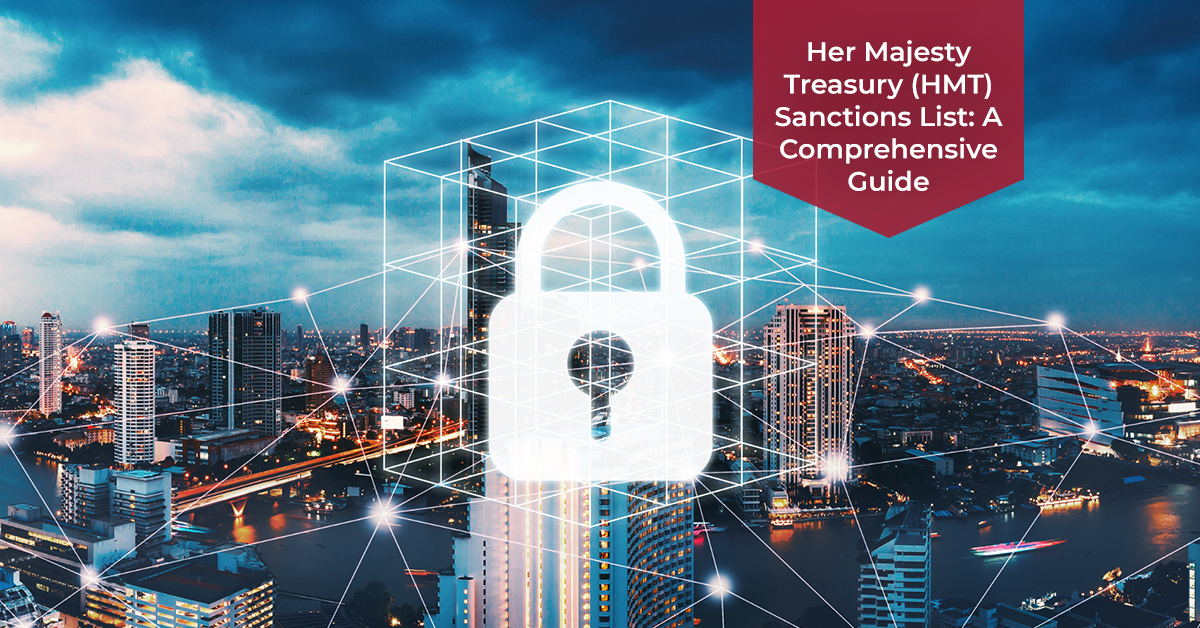
The Her Majesty Treasury (HMT) Sanctions List is a crucial tool in maintaining national security and international stability. Created and maintained by the United Kingdom’s Treasury Department, the HMT Sanctions List serves as a complete register of individualities, associations, and states subject to fiscal and trade restrictions due to their involvement in conditioning posing a trouble to UK’s interests or global security. This article aims to shed light on the HMT Sanctions List, explaining its purpose, the implications of non-compliance, and providing insights into the groups and individuals included.
What are the Her Majesty Treasury (HMT) List and its Sanctions?
The HMT Sanctions List is a powerful instrument employed by the United Kingdom to enforce financial and trade measures against entities or individuals linked to illicit activities, terrorism, human rights abuses, and other threats. These sanctions can encompass asset freezes, trip bans, trade vetoes, and proscriptions on fiscal deals with listed parties. The primary objects of the HMT sanctions List are to promote public security, discourage felonious conditioning, cover mortal rights, and uphold transnational law. By imposing financial and trade restrictions, the UK aims to deny listed individuals and organizations access to funds, resources, and international networks that enable their harmful activities.
Who are Object to Comply with Her Majesty Treasury (HMT) Sanctions?
All individualities and realities within the UK, including British citizens, residers, businesses, fiscal institutions, and non profit associations, are fairly obliged to misbehave with the HMT Sanctions List. Compliance involves refraining from engaging in any financial or trade transactions with the listed parties and promptly reporting any suspicions or knowledge of attempted breaches to the relevant authorities.
Non-compliance with HMT sanctions carries strict penalties, including felonious charges, forfeitures, and reputational damage. It is crucial for individuals and organizations to stay informed about the evolving HMT Sanctions List to ensure they remain compliant and avoid unintentional violations.
Groups and People on the Her Majesty Treasury (HMT) Sanctions List
The HMT sanctions List is regularly streamlined to include individualities, associations, and countries supposed to disguise a trouble to the UK’s public security or transnational interests. The list encompasses a wide range of individualities and groups involved in conditioning similar as terrorism, arms proliferation, plutocrat laundering, corruption, and mortal rights abuses.
While the specific contents of the HMT sanctions list are continually changing, exemplifications of targeted realities include terrorist associations, individualities associated with mortal rights violations, government officers involved in corruption, arms dealers, and realities involved in the proliferation of munitions of mass destruction.
The HMT Sanctions List aims to ensure that those engaging in harmful activities are denied access to the financial resources necessary for their operations. By imposing restrictions and deterrent measures, the UK government seeks to disrupt illicit networks, weaken dangerous organizations, and promote stability and security both at home and abroad.
In summary, The Her Majesty Treasury (HMT) Sanctions List plays a vital role in safeguarding national security and international stability. It is an essential tool used by the United Kingdom to enforce financial and trade measures against individuals, organizations, and countries involved in illicit activities or posing threats to global security.
Compliance with the HMT Sanctions List is mandatory for all individuals and entities within the UK. Failure to comply with sanctions carries severe consequences, underscoring the importance of staying informed and vigilant. By understanding the purpose of the HMT Sanctions List and its implications, individuals and organizations can actively contribute to maintaining a safer and more secure world.

